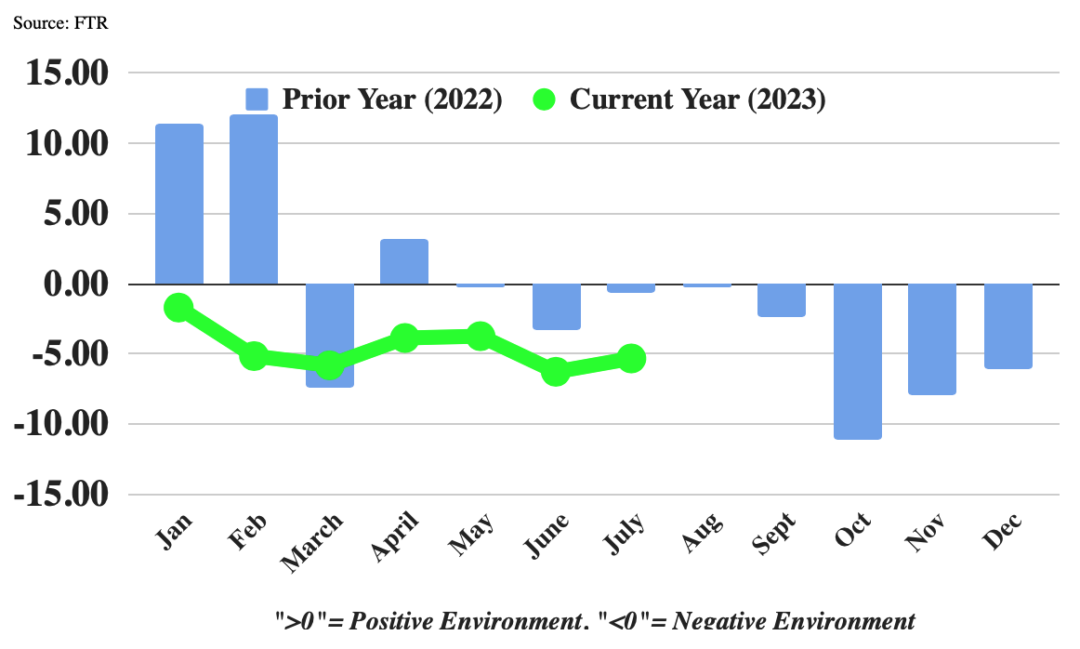FTR: trucking conditions remained in “solidly negative territory” in July
Outlook for trucking conditions may only improve to neutral by the third quarter of 2024, as sector struggles with low freight rates and volatile fuel costs

A measure of trucking business conditions improved slightly in July from the previous month, but still remains in “solidly negative territory,” according to a report from transportation sector analysis firm FTR.
FTR’s Trucking Conditions Index (TCI) was slightly less negative in July at -5.34 than June’s -6.29 reading as improved freight volume and capacity utilization offset weaker freight rates and higher fuel costs, the Indiana-based firm said.
That picture doesn’t look likely to improve anytime soon, as carriers continue to face challenging market conditions, and surging fuel prices in August and September will send the TCI even lower in the near term, FTR said. Aside from fuel cost volatility, the outlook for trucking conditions is little changed with only gradual improvement toward neutral readings by the third quarter of 2024.
“The overall truck freight market remains unfavorable for trucking companies, but the financial situation for smaller carriers in particular is tightening due to surging diesel prices,” Avery Vise, FTR’s vice president of trucking, said in a release. “Large numbers of small operations are exiting the market, and that exodus could accelerate if diesel prices continue to rise sharply. So far, the data suggests that larger carriers have absorbed much of that driver capacity, but truckload carriers are approaching a saturation point due to sluggish freight demand. Declining driver capacity could tighten the market modestly, but significant improvement for carriers will require stronger volume as well.”
FTR creates the TCI by tracking five conditions in the U.S. truck market: freight volumes, freight rates, fleet capacity, fuel prices, and financing costs. Combined into a single index number, the result shows good conditions when positive and bad conditions when negative.
Related Articles
Copyright ©2024. All Rights ReservedDesign, CMS, Hosting & Web Development :: ePublishing